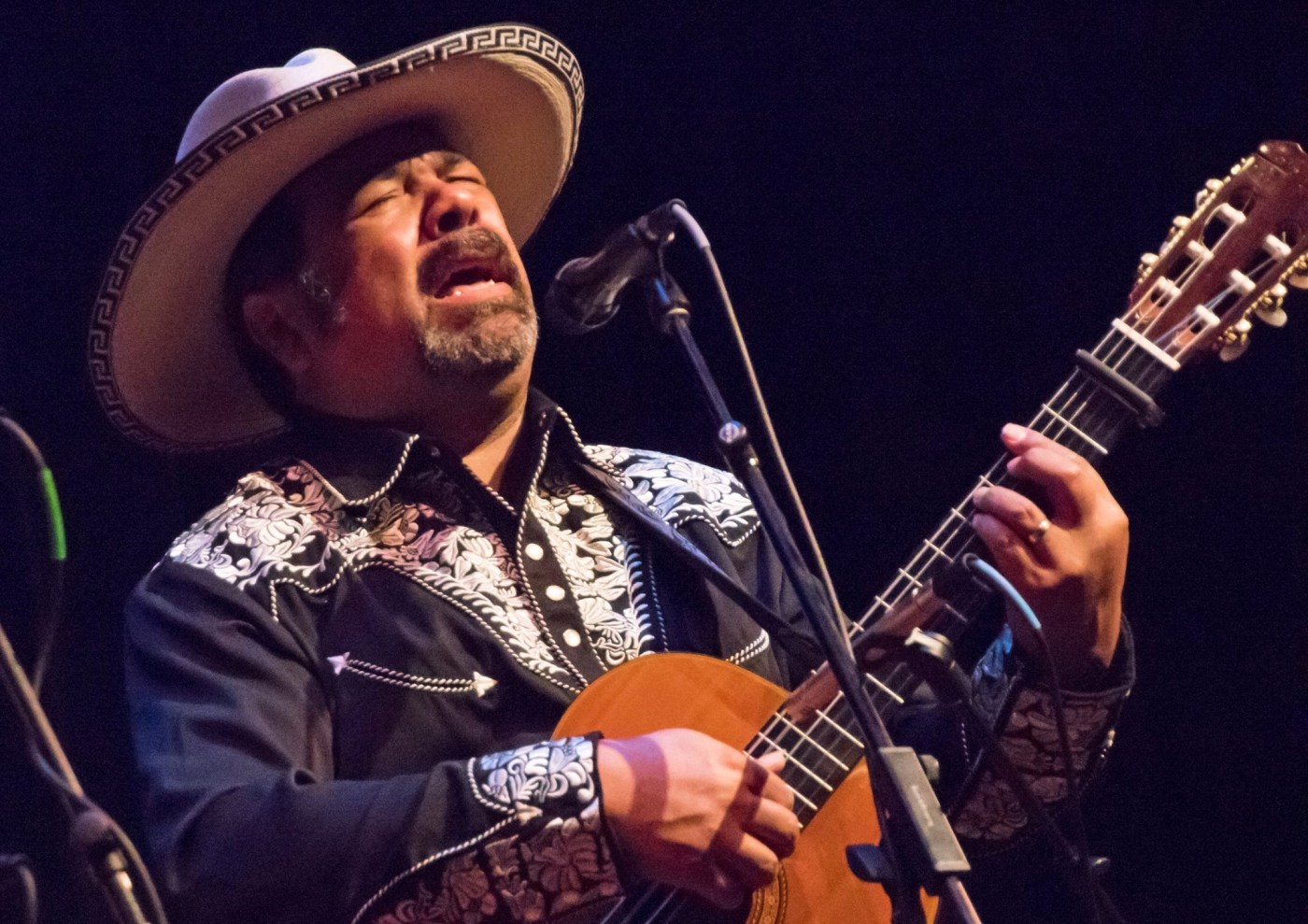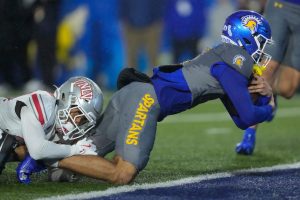Eugene Rodriguez begins his new memoir “Bird of Four Hundred Voices: A Mexican American Memoir of Music and Belonging” with a gut punch of a story.
The founder and guiding spirit of the San Pablo-based Mexican cultural arts academy Los Cenzontles recalls picking up a newspaper in the spring of 1994 when his eye caught a front page photo. The image captured kids he’d been teaching, mourning the rape and murder of their friend, 15-year-old Richmond High student Cecilia Rios.
Recounting how he came to fully understand the power of traditional Mexican music to transform the lives of young immigrants and children of immigrants, he describes channeling their sorrow into song.
“Sensing that the Mexican cultural traditions we were teaching our students could somehow be of service,” he writes, “we invited the teens to write verses about their friend.”
The resulting narrative ballad, “El Corrido de Cecilia Rios,” celebrated her life (“A good friend/She was appreciated everywhere”), described the attack, and dispassionately relegated her assailant to the penal system, where he “lives imprisoned without glory or faith.”
Out of these ashes, Rodriguez has built a mighty cultural force that has reshaped music on both sides of the U.S. Mexican border via the cultural academy, its flagship ensemble, and a luminous cast of Los Cenzontles collaborators, including Linda Ronstadt, Los Lobos, Taj Mahal, Ry Cooder, Mono Blanco, and the Chieftains.
He celebrates the release of “Bird of Four Hundred Voices” Aug. 10 at Los Cenzontles Cultural Arts Academy and Aug. 11 at San Jose Jazz’s Summer Fest in the lobby of the downtown Marriot, “where we’ll have a table playing son jarocho hosted by an old friend, Betto Arcos,” the veteran music journalist, DJ, and Latin music coordinator for San Jose Jazz, Rodriguez said.
“Saturday at the Academy, it’s a party,” he said. After a 45-minute set by the Los Conzontles ensemble, Rodriguez will do a Q&A session with California State Parks Director Armando Quintero, a former Cenzontles student who went on to serve on the organization’s board.
The celebration continues with a joint reading presented by City Lights Bookstore in North Beach’s Kerouac Alley on Aug. 23 with fellow author Robert Mailer Anderson. Hosted by The Kitchen Sisters’ Davia Nelson, the event also features music by a harp and violin duo from Los Cenzontles.
Published by Berkeley’s Heyday Books, “Bird of Four Hundred Voices” takes its name from cenzontles, the Nahuatl word for mockingbird, an English translation that’s “actually a misnomer, since the bird doesn’t disparage what it hears,” Rodriguez writes. “Rather, it listens to the sounds around it and incorporates it into its own voice.”
Throughout the book, Rodriguez shows this organic process in action. Rife with hard-won insight into the many ways in which working class cultural expression is undervalued and denigrated, “Bird of Four Hundred Voices” details his path as a cultural crusader.
Growing up in a middle class Mexican American family in predominately white Glendale in the 1970s, he gradually found his identity by immersing himself and teaching traditional Mexican music and dance. “My search for how I fit into the world became my career,” he writes.
Related Articles
This 26-year-old Silicon Valley tech worker uses her impostor syndrome as novel inspiration
How California School for the Deaf, Riverside became a football dynasty
Gilroy library adds passport services — including on evenings and weekends
Edna O’Brien dies at 93; acclaimed Irish novelist challenged homeland’s taboos on religion, sex, gender
Francine Pascal dies at 92; ex-soap opera writer created the beloved ‘Sweet Valley High’ books
While Los Cenzontles has been deeply involved in revitalizing roots traditions like son jarocho from Veracruz and the Jalisco string-band origins of mariachi, Rodriguez is committed to culture as a living force.
In order to learn fading styles Cenzontles students connected with elder musicians, but they also convened with peers intrigued by contemporary American music. On one of the group’s first trips to Veracruz, Rodriguez describes a joyful exchange when rural kids showed off their breakdance moves.
Recounting decades of challenges and successes in building a community-based organization, Rodriguez argues that foundations and government institutions, set up to support cultural endeavors, often work at cross purposes to their ostensible mission, funding trendy programs without deep roots in a community.
In place of high expectations and rigorous standards, “too often, youth arts programs in low-income communities condescend to their students by teaching them to recite boastful slogans that masquerade as self-empowerment but provide them nothing of lasting value,” he writes.
With more than two dozen albums, an acclaimed series of documentaries about the group’s travels and collaborations and hundreds of former students out in the world, Cenzontles has created an expansive legacy. “Bird of Four Hundred Voices” shows how the academy’s ascendance flies against deeply entrenched attitudes and structures.
“American cultural treasure comes from the working class, zydeco, hip hop, gospel,” Rodriguez said. “But where does the investment go? Never back to the communities that have created the wealth of American culture.”
Contact Andrew Gilbert at jazzscribe@aol.com.
EUGENE RODRIGUEZ
Celebrating new memoir, “Bird of Four Hundred Voices”
When & where: 2 p.m. Aug. 10 at Los Cenzontles Cultural Arts Academy, San Pablo; free (donations encouraged); www.loscenzontles.com; 2 p.m. Sunday, Aug. 11 at San Jose Jazz’s Summer Fest, Marriot San Jose; free; summerfest.sanjosejazz.org; 7 p.m. Aug. 23 at Kerouac Alley, San Francisco; free; citylights.com












